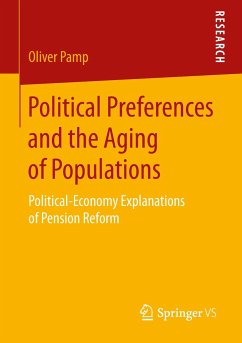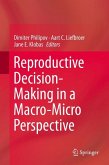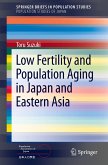Oliver Pamp analyzes the likelihood and extent of pension reforms from a political-economy perspective. It is shown that voters' preferences for or against reforms are influenced by a societies' demographic development, the generosity of its existing public pension scheme and its electoral system. The author extensively reviews existing formal models of pension systems, discusses their merits and limitations, and develops a three-period overlapping generations model. The model's insights regarding individual reform preferences are then put into the context of different electoral systems, thus emphasizing the important role of electoral institutions in the aggregation of societal preferences. Finally, using cross-national survey data, logit and ordered-logit analyses tentatively confirm some of the model's main implications.
Bitte wählen Sie Ihr Anliegen aus.
Rechnungen
Retourenschein anfordern
Bestellstatus
Storno








